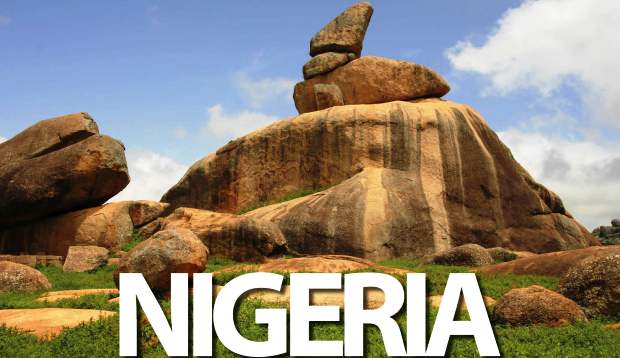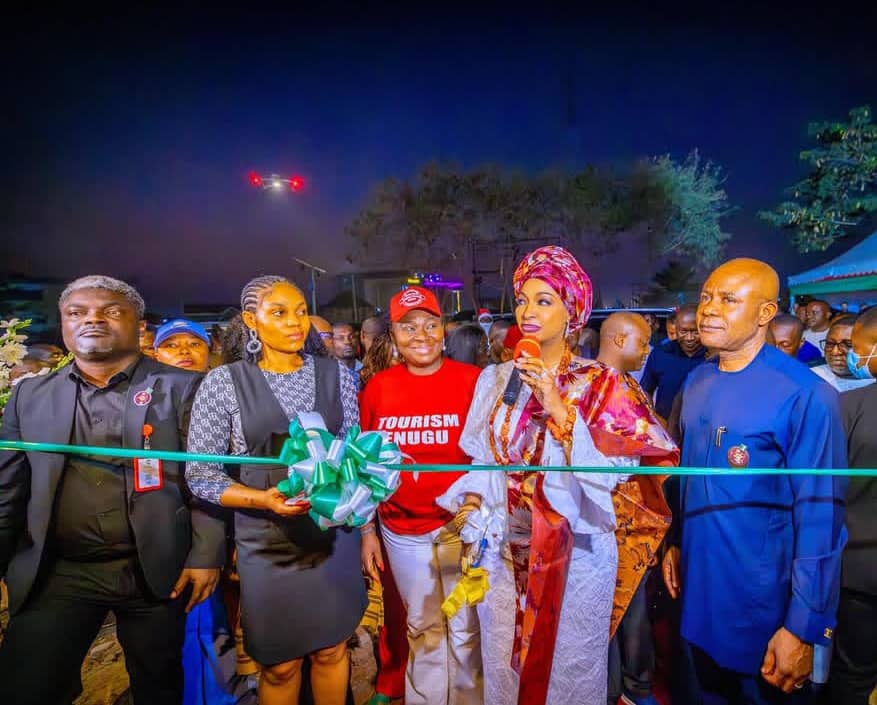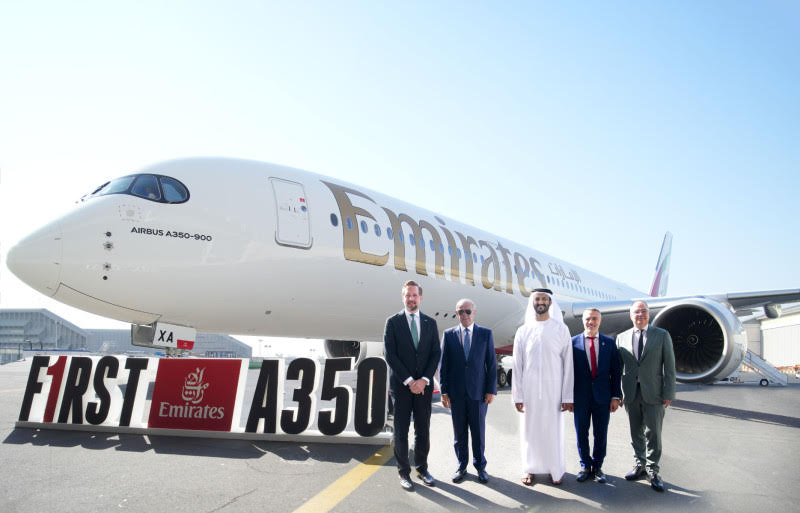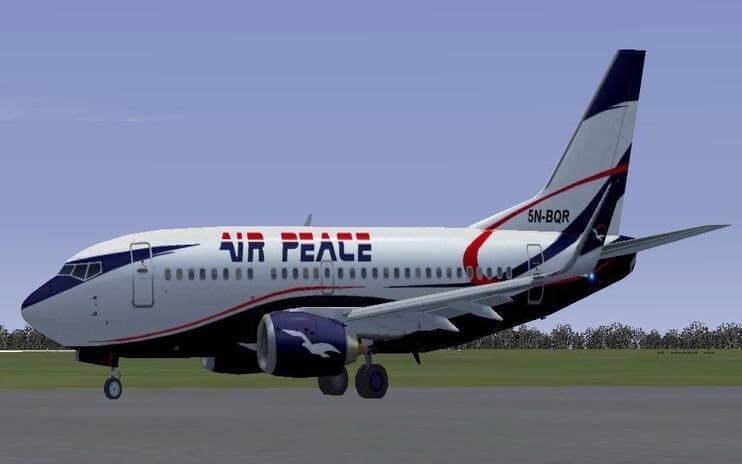Travel/Tourism
Understanding Economics of Tourism in Nigeria


By Olukayode Kolawole
In most gatherings of experts in the travel & hospitality industry, tourism as a tool in diversifying the Nigerian economy has received the most attention and provoked lots of intellectual comments. This is not surprising at all considering the huge potential that this particular sector possesses.
In most developed and developing countries, tourism has enriched the economies of these countries thus becoming one of the major sources of income and a pillar of commerce.
The decision to grow tourism into a consistent and sustainable means of income by these countries and to make it appealing to inbound and outbound tourists was not arbitrary, but rather deliberate and planned. Without a doubt, other countries like Nigeria are amazed to see the attendant economic implications this sector has birth.
We can achieve this feat or even better than these countries. We have an advantage: our population. In fact, if we can sell tourism to just Nigerians to a point where they can see the value proposition, it might become optional to sell to foreign tourists.
Majority of the countries benefiting from tourism revenue such as Kenya, South Africa, Seychelles etc. do not have the kind of population density that Nigeria has.
In fact, the total inhabitants of some of the countries only equal the total population of Lagos dwellers – which is over 20 million. So, we have the numbers, and the percentage of our population that has the purchasing power for tourism is above 30%, out of over 180 million Nigerians.
Nonetheless, influencing the government at the central to earmark some budget for the growth of this sector in the yearly fiscal budget might seem to be a herculean task. The reason is simple: we’re an oil-dependent economy. But the reality is hitting us hard in the face. The last few months have helped us as a country to reevaluate our sheer reliance on crude oil. Matter-of-factly, the government must have learnt a great lesson from the recession: dependency on one major source of income is bad for a growing economy like ours with a population that grows on an average of 2.3% yearly. We are yet to develop another sector to have little parity in terms of revenue being generated compared with the oil & gas sector. Exactly why we felt the pangs of the recession when it came through.
It’s very heart-warming to see that the government of the day is now tilting its focus towards expanding and developing other sectors that can ultimately support our mainstay.
The recent comments of the Minister of Information, Culture & Tourism, Lai Mohammed at the Annual General Meeting (AGM) of the Nigerian Association of Tour Operators (NATOP) that is being led by Nkereuwem Onung, reassured all in attendance that tourism has now become a focal point for the government.
According to the minister, policies at all levels have now been put in place to engender tourism growth. For instance, the committee on the Presidential Council on Tourism has been resuscitated.
This is to engender the rapid development of the sector through policy directions. The committee will see to the implementation of the tourism roadmap and the festival calendar.
Also, policies on issuance of visas have been reviewed. Now, it will only take 48 hours to issue visas to foreign tourists who are interested in exploring our tourism sites.
In addition, several partnership deals are being sought and relevant agencies involved in brokering the partnerships have since swung into action. Suffice to say, in the next couple of months, the narrative will no doubt be positive.
Something very interesting that the minister hinted on is the tripartite partnership involving the Ministry, the UN World Tourism Organisation (UNWTO) and global news leader, CNN.
The objective of the partnership is to leverage on Nollywood to promote tourism in Nigeria. He described the move as a very strong and effective partnership – to use comparative advantage in film production through Nollywood – to promote tourism in the country.
Although this is the first-of-its-kind partnership, the minister believes that this will push tourism from the back-burner to the mainstream of our economy.
Promoting tourism through Nollywood is by far a great idea, considering it is one of our biggest exports to Africa and the world. So, there is no doubt that if well implemented and monitored, the impact will be great.
To make tourism profitable in Nigeria, there is a need for collaboration between the private sector and the government. The minister couldn’t have emphasized this more. In fact, government should only be involved at the initial stage of any tourism programme. For sustenance and continuity, it should be private sector led.
The former governor of Cross Rivers state, Dr. Liyel Imoke who was the guest speaker at the AGM used his state’s tourism success story as a case study to illustrate how to make tourism work within the Nigerian economic space. His hands-on experience added weight to his presentation.
He cited the success of the Calabar International Festival which was created by his predecessor Donald Duke to buttress the claim that tourism has a higher chance of surviving and becoming the country’s mainstay. “With the right policy, vision, infrastructure, and attitude, tourism will become the country’s major revenue earner,” he said.
Two of the several challenges forestalling the growth of the sector are: duplicity of festivals & misrepresentation of Nigeria by Nigerians. Since the successful launch and continuity of the Calabar International Festival, we have witnessed the launch of similar carnival/festival in some states.
For instance, there’s Abuja Carnival, Port Harcourt Carnival (Carniriv), Akwa Ibom Festival, and many more. While it is laudable to have these many festivals or carnivals, it’s important to verify the success rates of these festivals.
It appears that Calabar Festival is still the only successful and consistent festival. It is indeed imperative for these festivals to be harmonized to stimulate patronage and reduce confusion associated with simultaneous holding of festivals in the country.
Lastly, fellow Nigerians, we too have a lot to do in consolidating the efforts of the various government parastatals in pushing the frontier of our tourism industry forward.
Our major role will include representing and speaking well of Nigeria. This appears to be our greatest problem. We should stop running down our country especially those in diaspora. If we continue, foreigners – as much as we do not want to rely on their patronage – will be dissuaded from coming to visit our tourism sites. it’s crucial we start speaking well of our country.
Olukayode Kolawole is the Head of PR & Marketing at Jumia Travel
Travel/Tourism
Musawa, Governor Mba Commission Enugu Christmas Village

By Dipo Olowookere
The Enugu Christmas Village has been commissioned by the Minister of Arts, Tourism, Culture, and the Creative Economy, Ms Hanatu Musawa; and the Governor of Enugu State, Mr Peter Mba.
This development officially kicked off the holiday season in the state, giving residents and others from across Nigeria and outside the opportunity to relax in an atmosphere of love, positioning Enugu as a key destination for cultural and holiday tourism.
Facilitated by Omu Resort, a leading tourism promoter in Africa, the Enugu Christmas Village is set to become the heartbeat of holiday celebrations in the state.
The company has already organised a 25-day festival at the village designed to attract residents, visitors, and dignitaries from across the region.
With its vibrant atmosphere and festive attractions, the Enugu Christmas Village boasts an array of attractions such as a waterpark, roller skating, archery, amusement rides, and much more.
At its centre is a breathtaking display of 500,000 Christmas lights, illuminating the village in a magical glow that promises to captivate visitors of all ages.
The festival goes beyond the lights and rides, offering a rich tapestry of events that celebrate the state’s cultural heritage.
Highlights include Afrobeat Concert, Praise Night, Highlife Concert Street Carnival, Cultural Parade and a Grand Fireworks Show.
One of the most anticipated moments is the Santa Street Storm, where over 100 Santa Claus figures riding tricycles will parade through the streets, distributing gifts to orphanages and the less privileged, spreading joy and goodwill.
Running from December 7 to December 31, 2024, the Enugu Christmas Festival is more than just a celebration of the holiday season. It underscores the state’s cultural vibrancy and its potential as a leading tourist destination.
The festival offers a unique opportunity for families and friends to come together, celebrate, and unwind in a festive atmosphere. It is also expected to fosters unity and showcases the rich cultural heritage of Enugu State, while promoting arts, tourism, and community well-being.
Travel/Tourism
Emirates Unveils Airbus A350-900 in Dubai

By Aduragbemi Omiyale
One of the leading airline operators, Emirates Airline, has officially unveiled its first Airbus A350-900 at an exclusive event showcase in Dubai attended by aerospace partners, government officials and dignitaries, members of the media, as well as aviation enthusiasts.
The Emirates A350 features three spacious cabin classes, accommodating 312 passengers in 32 next-generation Business Class lie-flat seats, 21 Premium Economy seats and 259 generously pitched Economy Class seats.
The latest onboard products reflect the airline’s commitment to delivering a premium passenger experience while optimising operational efficiency. The Emirates A350 is the first new aircraft type to join Emirates’ fleet since 2008.
Apart from its newly delivered A350, Emirates operates two other aircraft types around the world to 140 destinations – the widebody Boeing 777 aircraft and the iconic ‘double decker’ Airbus A380 aircraft.
The A350’s introduction will enable Emirates to expand into new destinations globally, including mid-sized airports unsuited for larger aircraft. The Emirates A350 will be delivered in two versions – one for regional routes and one for ultra long-haul routes.
The Emirates A350 takes technology to another level. Customers can now adjust their electric window blinds at the touch of a button.
The aerBlade dual blind system will feature in Business and Premium Economy Class offering two shaded options, and the aerBlade single blind systems will make a debut in Economy Class, with all blinds showing the Emirates Ghaf tree motif when closed.
Business Class on the Emirates A350 will feature 32 luxurious leather ‘S Lounge seats’, inspired by the Mercedes S Class for an exceptional travel experience. The A350 aircraft will feature brand new additions of wireless charging on the side cocktail table in Business Class, and in-seat lighting controls with 5 streams of light. The 1-2-1 seat configuration in the A350 Business Class ensures a very private, exclusive experience.
Speaking at the event, the chairman of Emirates Airline, Mr Ahmed bin Saeed Al Maktoum, said, “Today is an exciting milestone for Emirates as we showcase our first A350 and usher in a new era for our fleet and network growth.
“This aircraft sets the stage for Emirates to spread its wings farther by offering added range, efficiency and flexibility to our network, enabling us to meet customer demand in new markets and unlock new opportunities in the cities that we serve.
“Onboard, our updated interiors and seating configurations will help us deliver a more elevated and comfortable experience to travellers across every cabin class.
“The 65 Emirates A350s joining our fleet in the coming years fit into the airline’s broader plans to support our visionary leadership’s Dubai’s D33 Strategy, which will transform the city into a pivotal hub in the global economy by expanding its connectivity and reach.”
Travel/Tourism
Air Peace Employees Undergo Training at Boeing Global Learning Institute

By Aduragbemi Omiyale
Some employees of Air Peace have upgraded their aviation safety skills at a training course organised by Boeing through the Boeing Global Learning Institute (BGLI) in collaboration with Cranfield University, United Kingdom as part of a shared commitment to shaping the future of aviation leadership.
Over the years, Air Peace has recognized that a deep, unwavering commitment to safety is key to its continued success.
The programme is aimed at building upon that vision, enabling executives to lead with confidence, manage risks effectively, and create high-performing teams that prioritize safety at every level.
In the five-day in-person training, all the executives and others in the various departments of Air Peace were taught advanced safety leadership skills and gained practical tools to implement the new knowledge.
The Head of Aerospace at Cranfield University, Prof Graham Braithwaite, said, “This collaboration ensured that the training directly addresses the challenges Air Peace faces, culminating in real-world capstone projects that would have a lasting impact.”
Reinforcing this position, the Lecturer for Organisational Resilience and Change at Cranfield School of Management, Fabian Steinmann, who was excited at the great progress Air Peace made over the years, said that they are happy to learn and share knowledge and find ways to strengthen the system, making it robust and flexible to adapt to the ever-changing environment.
“Safety is at the heart of everything we do at Cranfield so the privilege we have is that we travelled around the world, picked up the good practices, learned more about the culture and the operation in various countries so we’re here to facilitate that exchange with Nigeria and Air Peace to see how we share some of the good practices and lessons learned from all around the world and translate them into their operation.”
Also, the Senior Organisational Consultant and Programme Manager at Boeing Global Learning Institute, Harry Magui, said, “The Boeing company has long recognised the importance of supporting continuous learning of our aviation partners.
“To that end, the Boeing Global Learning Institute designs and delivers numerous learning programmes to both emerging and established leaders of our partners.
“These efforts aim to develop leadership, business, and technical skills so that our partners can improve their business processes, increase operational efficiency and enable leaders to strengthen their teams to ultimately grow their business.’
Alluding to the great work Air Peace has done in making safety a pre-condition rather than just a priority, Magui said, “We’re here to partner with our great partner, Air Peace who have been phenomenal in advancing the Aviation Industry in Nigeria, so we are here to support them to harness more opportunities in the future with the Advanced Leadership in Safety Excellence Training for all its top leadership within the organization.”
The Safety Manager at Air Peace, Captain Godfrey Ogbogu, said, “This class is quite essential and we’re lucky to have our resource persons impact knowledge on us. It is a well-structured training, especially for Air Peace because of where we are now and where we hope to go in the future.
“The whole essence of this class is to reinforce what we know before and be exposed to other avenues of learning. The aviation industry is ever-changing and dynamic, and Air Peace has to be abreast of such developments.”
-

 Feature/OPED5 years ago
Feature/OPED5 years agoDavos was Different this year
-
Travel/Tourism8 years ago
Lagos Seals Western Lodge Hotel In Ikorodu
-

 Showbiz2 years ago
Showbiz2 years agoEstranged Lover Releases Videos of Empress Njamah Bathing
-

 Banking6 years ago
Banking6 years agoSort Codes of GTBank Branches in Nigeria
-

 Economy2 years ago
Economy2 years agoSubsidy Removal: CNG at N130 Per Litre Cheaper Than Petrol—IPMAN
-

 Banking2 years ago
Banking2 years agoFirst Bank Announces Planned Downtime
-

 Sports2 years ago
Sports2 years agoHighest Paid Nigerian Footballer – How Much Do Nigerian Footballers Earn
-

 Technology4 years ago
Technology4 years agoHow To Link Your MTN, Airtel, Glo, 9mobile Lines to NIN










